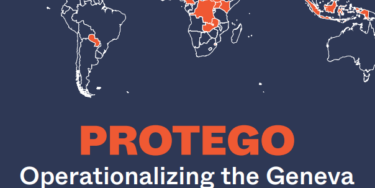The Friedrich Ebert Stiftung published this report on religious fundamentalisms and their gendered impacts in Asia in 2010.
Amidst growing uncertainties in a globalised world, fundamentalist convictions have been gaining ground in many religions. Reinforced by the threat from international terrorism, this renaissance of religious fundamentalisms has created ideological conditions for polarisation between ‘us’ and ‘them’, from community to transnational level. At national level, it has affected both politics and society, leading to something of a ‘retraditionalisation’ of gender roles.
The understanding of fundamentalism is often one-dimensional, however, and dominated by the figure of the male Muslim. In fact, fundamentalism is multifaceted and rooted in different religious and cultural contexts. However, among the vast diversity of religions, cultures and peoples in Asia, a number of common features can be discerned with regard to religious fundamentalisms and gender:
- The authority to interpret sacred religious texts in order to construct an ideology is often monopolised by and enforced to sustain patriarchal structures, and therefore it is a question of authority and power.
- Women are often the first target of fundamentalist forces in an effort to demonise all difference and to prescribe codes of behaviour, thus either restricting or exaggerating the role of women.
The stereotypical assignation of gender roles limits the space for diversity, dissent and socio-political participation on the part of women. This gradually leads to the erosion of the democratic polity and respect for human rights, reversing many improvements that have been made in Asian societies in recent decades.
The Regional Office for Cooperation in Asia of the Friedrich-Ebert-Stiftung and the country offices in the region are trying to help foster gender equality in Asia and to promote women’s rights in accordance with the Beijing Declaration and the Platform for Action. Religious fundamentalisms are jeopardising these goals and making the struggle for universality of women’s human rights more difficult, but also more important.
Table of Contents
- Preface 5
- Religious Fundamentalisms and Their Gendered Impacts in Asia 7
- Sanctifying Moral Tyranny: Religious Fundamentalisms and the Political Disempowerment of Women 13
- Sinhala Buddhist Nationalism/‘Fundamentalism’ and Its Impact on Gendered Political Participation in Sri Lanka 27
- Malaysia – Trajectory towards Secularism or Islamism? 44
- Islam and Women’s Political Participation in Indonesia: Discourses and Practices 68
- Catholic Fundamentalism and Its Impact on Women’s Political Participation in the Philippines 88
- Religion, Women and Politics: An Observer’s Analysis 107



